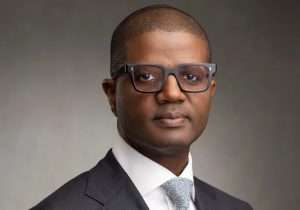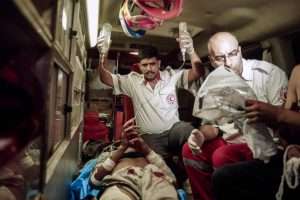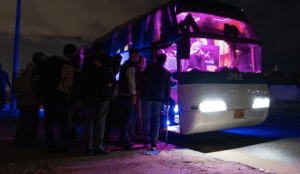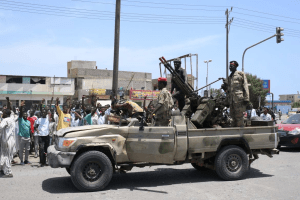Lina AbiRafeh: Morocco earthquake comes down harder on women
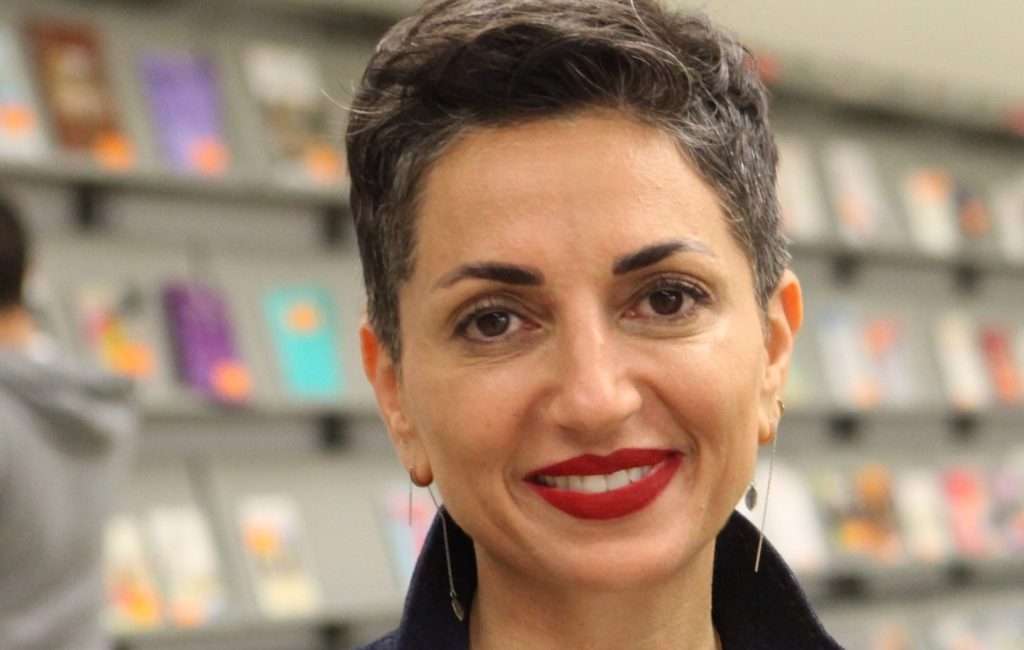
On 8 September 2023, Morocco was hit by a magnitude-6.8 earthquake — the most powerful earthquake the country has experienced in over 100 years. The number of casualties continues to grow. At present, around 3,000 people have been killed and nearly 6,000 injured. Morocco will continue to feel the effects of this tragedy for a long while.
There’s death and destruction, loss of livelihoods and support, communities and homes that are now no longer. All of this will need to be rebuilt. There are other things, too, beneath the surface, things that were on shaky ground even before the earthquake hit.
Before the earthquake, women’s needs and risks in Morocco were significant. Despite patchy progress, Moroccan society is still traditional, and overwhelmingly patriarchal. Women have little to no control over key aspects of their lives and remain discriminated against across health, education, the economy, and politics. The country was ranked 136 out of 146 countries by the Global Gender Gap Report 2023, close to Iran and Afghanistan in terms of gender disparities.
READ: Concerns over child abuse heighten following Morocco earthquake
And now the earthquake. We’d imagine natural disasters impact us all equally, but that’s not true. Women feel the shocks long after the earth stops shaking. I know this because I’m a former humanitarian aid worker with a too-long history of warzones and disasters, deployed to both Haiti and Nepal following their massive earthquakes. I know too well what natural disasters do to individuals, communities, countries. And, to women.
There’s a gendered impact in the aftermath of the quake. In the midst of all the chaos, law and order, support and services, and community networks are damaged and destroyed. And all the forms of violence that women and girls face everywhere increase — with new ones created. Because that’s how we “cope” with crisis. Precisely when we should stick together — we don’t. And every form of violence against women — particularly sexual violence — increases.
So, even when the “emergency” is over, we can’t look away. Because in those moments, the emergency for women is just beginning. And there’s nothing “natural” about that disaster.
I remember the Haiti earthquake in January of 2010 — killing nearly 300,000 people in 35 seconds. There, I met a young woman named Carine, one of 3 million people affected by the earthquake. She was also one of the 1.3 million Haitians displaced and living in makeshift camps.
In Carine’s camp, shelters and hastily assembled feeble structures sprung up like mushrooms after the earthquake, with plastic bits and broken pieces of corrugated iron and white tarp with aid agency logos and sticks jutting out of the mud. Wherever I looked, there were plastic bags tied together to create a semblance of shelter, and wild dogs patrolling the outskirts. And thousands of people, everywhere, idle. People wondering what they were supposed to do now, now that they’d lost everything.
Carine went from being a young university student to homeless and displaced in under a minute.
“Before the earthquake, I wanted to be a journalist,” she told me. “Now I can’t study — my university doesn’t exist. The earthquake… it tore up our futures.”
She explained that violence against women had always existed in Haiti. And now in the camps, conditions were brutal — no privacy, hardly any lighting, sanitation facilities few. Even if violence against women wasn’t taking place in front of you, you could smell the fear of it in the air.
Carine reminded me that “no matter how things happen for us, it always happens worse for women. Violence against women continues even when conflicts and disasters do not.”
In every single emergency I have ever seen, women’s rights are violated and need to be renegotiated and protected as if they never existed. As if they did not have a right to exist. Every single time. When the crisis ends, it doesn’t seem to end for women. Even before it strikes, women are more vulnerable. Then, add a disaster. It brings out the best and worst in us all. Initially, we save each other, we support each other. But when the dust settles, and people realize what they’ve lost, women become increasingly targeted.
I have never understood why, in our most vulnerable moments, we turn on each other. We turn on the vulnerable amongst us. And women are already vulnerable, even before a disaster. A war, an earthquake, anything, it just makes a bad situation so much worse.
So, yes, Haiti’s earthquake had a massive impact on women. Just like everywhere else I’d been. And just like Morocco. In Haiti, women asked for jobs and money, even before support and services for those who had experienced sexual violence.
“Work first,” they said to me, “and then I can decide what to do with the money. I can use it to protect myself and my children in the ways that I want.”
“Our women — all women! — they are strong and resilient,” Carine had said to me. “But I hate this word — resilient. We’re only resilient because we have to be. Because we have no other choice. And we are living in a way that reminds us every day that we have no choice. Families with young girls fear letting them out at night. We just don’t feel safe.”
I remember the work I did, advocating with colleagues to take the needs of women and girls into account. To those in charge of setting up shelters, I warned that they had to create safe spaces for women and girls — “especially those on their own and forced to sleep next to men they don’t know!”
To colleagues in charge of sanitation and hygiene, I argued that toilets were not safe unless they were lit from the inside and out, and lockable. “Otherwise women and girls will not go!” I’d repeat, again and again.
For those providing lighting, I’d remind them to light up all the dark areas “so women and girls feel safe.” Because — and I’m surprised that I had to explain this — “bad things happen in the dark.”
“violence against women is under-reported everywhere — even in countries with well-functioning, high-quality services. Now in Morocco, with basic services lost, reported cases of violence won’t give us an accurate sense of the problem”
The people focused on livelihoods needed to provide targeted opportunities to women. “With money,” I reminded them, “women would be less at risk and better able to make their own choices.”
Yes, violence against women occurs everywhere. No, no country is immune. And no emergency is immune, no matter where it is. I’d use the example of Hurricane Katrina in the U.S. in 2005. There, sexual violence increased so much that emergency services had to turn women away because they could not help them all. And almost two decades later, intimate partner violence was still high, and increasing. Because that’s what happens in an emergency — we turn on women. I wish I knew why. Even after decades of doing this work, I just don’t know why.
What we do know is this: violence against women is under-reported everywhere — even in countries with well-functioning, high-quality services. Now in Morocco, with basic services lost, reported cases of violence won’t give us an accurate sense of the problem. And it is a very severe problem. Even before the earthquake. We do not need numbers to tell us this.
One way to gauge women’s safety is to pay attention to women in public spaces… Are they walking around freely? Are they accessing what they need? Have they set up markets to sell things — products they make, fruits they harvest? Women’s markets are a good sign. It means they’re feeling safe. Free. Women’s freedom is a good sign. When women have money, they have choices. And when they have choices, they have freedom.
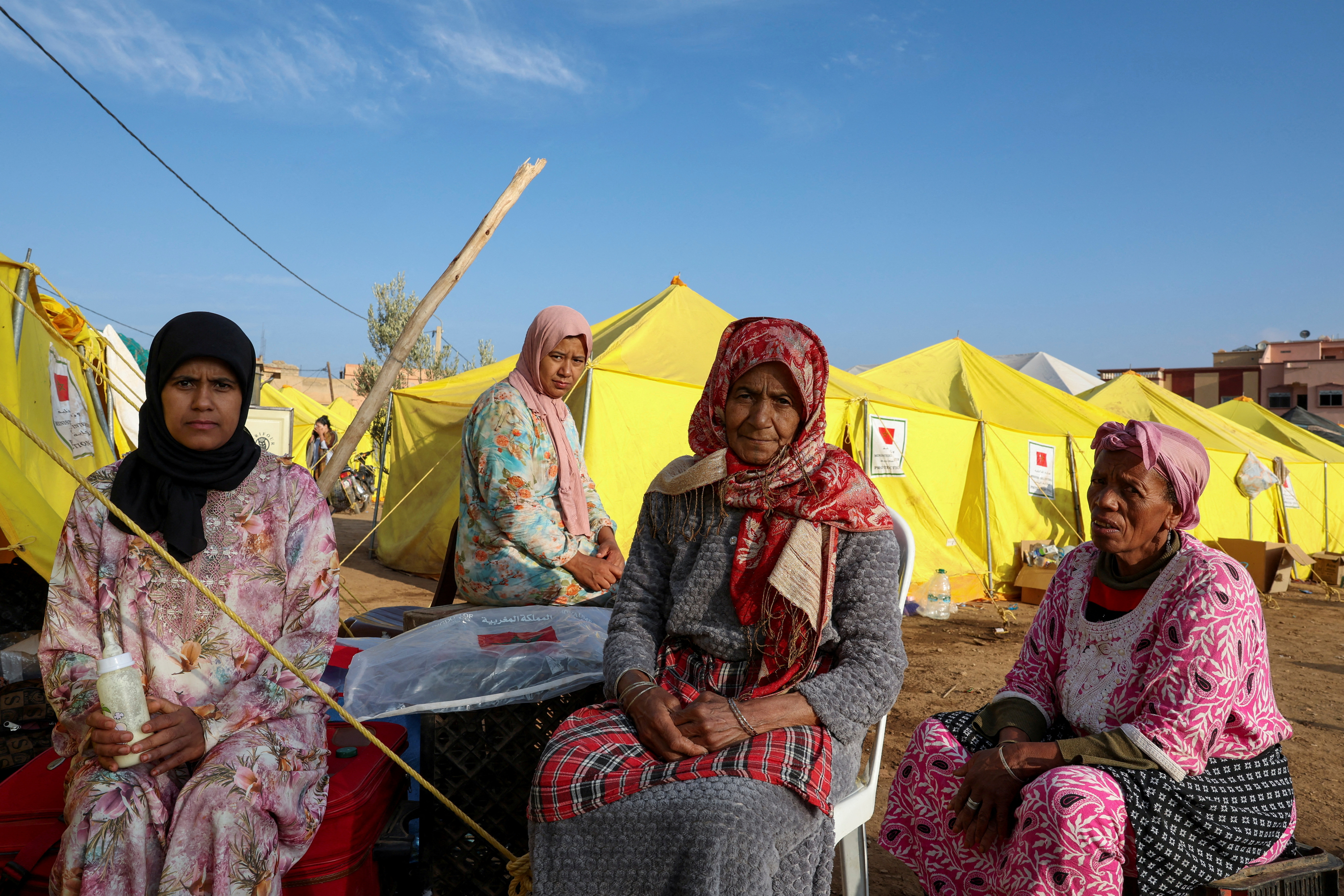
So what can we do to help? (Great question, thanks for asking!)
For now, as always, we lean on local organizations — on community groups and women-led groups and those who have always been, and always will be, on the frontlines. At the same time, these are the organizations we too often fail to fund fully, fail to support adequately, and sideline all-too-frequently. These organizations are already stretched beyond capacity. This time, let’s support and equip them to deal with a disaster on this scale, and prepare for whatever may come next. Women-led organizations are on the frontlines, providing critical relief including food, water, shelter.
What’s more, we need to pay attention to the needs and risks of women — especially those in rural areas and indigenous communities. Politics4Her has already issued its Manifesto for gender-sensitive earthquake relief. They are focusing on sexual and reproductive health, already a challenge even in so-called stable times. As a result of the earthquake, women’s privacy and dignity is compromised. They have little to no access to menstrual products and disrupted healthcare, including pre- and post-natal care and support to cope with the trauma of the event. And, the risk of violence — specifically sexual violence — remains massive.
In light of this, Politics4Her has made policy recommendations on access to sexual and reproductive health and rights, psychosocial support, safe housing and shelter, community-led disaster preparedness, women’s representation and leadership, and much more. Follow them and find out how you can get involved to support their earthquake-relief efforts — and beyond.
And there are other women-led groups on the frontlines, for instance Amal Women’s Training Center and JOOD. Follow, learn, donate!
One of the last things Carine said to me before I left Haiti was this:
“Haitian women are not — and never have been — spectators in the story that is Haiti. The future of Haiti is the future of its women. And women need to participate in every part of it. Or there will be no Haiti.”
The same is true for Morocco. And the U.S. And — everywhere.
Dr. Lina AbiRafeh is the Executive Director of the Arab Institute for Women (AiW) at the Lebanese American University, based in New York and Lebanon. This article was originally published on Medium.
Want to chase the pulse of North Africa?
Subscribe to receive our FREE weekly PDF magazine










